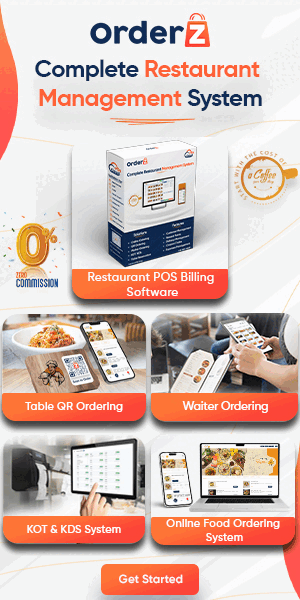Introduction
Singapore, a global financial powerhouse and a leading tech hub, has consistently attracted entrepreneurs from around the world. With its business-friendly environment, strategic location, and strong infrastructure, the city-state offers a fertile ground for startups and established businesses alike.
In 2024, Singapore’s vibrant economy continues to flourish, driven by factors such as:
Strong Economic Growth: Singapore’s GDP has consistently outperformed many other developed economies, making it an attractive destination for investors and entrepreneurs.
Favorable Business Environment: The government’s pro-business policies, coupled with efficient bureaucracy and a skilled workforce, create a conducive environment for entrepreneurship.
Strategic Location: Singapore’s strategic location in Southeast Asia provides easy access to a vast market of over 650 million people.
Technological Advancements: The city-state’s commitment to innovation and technology has positioned it as a global leader in sectors such as fintech, artificial intelligence, and cybersecurity.
According to the Singapore Department of Statistics, the number of new business entities registered in 2023 increased by 6.2% compared to the previous year, indicating a surge in entrepreneurial activity.
Furthermore, a survey conducted by Enterprise Singapore revealed that sectors such as digital services, green technology, and health and wellness are expected to see significant growth in 2024, driven by evolving consumer needs and government initiatives aimed at fostering innovation.
As Singapore continues to evolve as a dynamic business hub, there is a growing demand for entrepreneurs who can capitalize on emerging trends and opportunities. In this blog, we will explore the top 10 most in-demand business ideas in Singapore for 2024, highlighting key trends, market insights, and potential challenges that aspiring entrepreneurs should consider.
Is Singapore the right choice for your startup business?
Whether Singapore is the right choice for your startup depends on several factors, including your business goals, target market, and specific needs.
Here are some key considerations to help you decide:
Pros of Singapore:

- Stable and business-friendly environment: Singapore offers a politically stable and supportive environment for businesses, with clear regulations and efficient government processes.
- Strategic location: Singapore’s location in Southeast Asia provides easy access to a vast market of over 650 million people.
- Strong infrastructure: The country boasts excellent infrastructure, including transportation, telecommunications, and utilities.
- Highly skilled workforce: Singapore has a highly educated and skilled workforce, making it easy to find talented employees.
- Supportive government initiatives: The government offers various incentives, grants, and programs to support startups and entrepreneurs.
- Thriving tech ecosystem: Singapore is a hub for innovation and technology, with a growing number of startups, incubators, and accelerators.
Cons of Singapore:

- High cost of living: Singapore is one of the most expensive cities in the world, which can impact business costs.
- Competitive market: The market can be highly competitive, requiring startups to differentiate themselves and offer unique value propositions.
- Strict regulations: Singapore’s regulatory environment can be stringent, and compliance can be time-consuming and complex.
10 most in-demand business ideas in Singapore
1. E-commerce and Online Retail
 Singapore’s high internet penetration rate, coupled with its tech-savvy population, has fueled the growth of e-commerce.
Singapore’s high internet penetration rate, coupled with its tech-savvy population, has fueled the growth of e-commerce.
The e-commerce market in Singapore is projected to reach USD 12.6 billion by 2027, with an annual growth rate of 11.68% (Statista).
Focus on niche products, personalized services, and efficient delivery systems to stand out in the competitive market.
2. Health and Wellness Services
 Singaporeans are increasingly prioritizing health and well-being, leading to a surge in demand for fitness centers, wellness coaching, and mental health services.
Singaporeans are increasingly prioritizing health and well-being, leading to a surge in demand for fitness centers, wellness coaching, and mental health services.
The health and wellness market in Singapore is estimated to reach USD 1.5 billion by 2025 (ResearchAndMarkets).
Offer tailored services, incorporate technology, and focus on preventive care to meet the evolving needs of consumers.
3. Green and Sustainable Businesses
 Singapore’s commitment to sustainability has created a market for eco-friendly products and services, such as renewable energy solutions, organic food, and sustainable packaging.
Singapore’s commitment to sustainability has created a market for eco-friendly products and services, such as renewable energy solutions, organic food, and sustainable packaging.
The sustainable products market in Singapore is expected to grow by 8.7% annually, driven by the government’s Green Plan 2030 initiatives (Ministry of Sustainability and the Environment).
Position your business as eco-friendly, leverage government incentives, and cater to the growing demand for sustainable solutions.
4. Digital Marketing and Social Media Management
 As businesses increasingly rely on online platforms, the demand for digital marketing services, including SEO, content creation, and social media management, continues to grow.
As businesses increasingly rely on online platforms, the demand for digital marketing services, including SEO, content creation, and social media management, continues to grow.
90% of Singaporeans are active on social media, making it a prime market for digital marketing services (We Are Social).
Stay updated with digital trends, offer specialized services, and build strong relationships with clients to succeed in this competitive field.
5. Food and Beverage (F&B) Concepts
 Singapore’s diverse population and culinary culture have fueled the growth of the F&B industry. Innovative dining experiences, cloud kitchens, and food delivery services are particularly popular.
Singapore’s diverse population and culinary culture have fueled the growth of the F&B industry. Innovative dining experiences, cloud kitchens, and food delivery services are particularly popular.
Singapore’s F&B market is projected to grow by 3.1% annually, with online food delivery expected to hit USD 1.1 billion by 2025 (Euromonitor).
Offer unique dining experiences, cater to specific dietary preferences, and leverage technology to enhance your operations.
6. Education and Training

The demand for quality education and training is high in Singapore, especially in areas like technology, language skills, and professional development.
The education market in Singapore is estimated to reach USD 23.6 billion by 2025 (ResearchAndMarkets).
Specialize in niche areas, provide innovative learning methods, and leverage technology to deliver effective training programs.
7. Elderly Care Services

Singapore’s aging population has created a growing demand for elderly care services, including home care, assisted living facilities, and specialized care for seniors with chronic conditions.
The elderly care market in Singapore is expected to reach USD 10.5 billion by 2025 (ResearchAndMarkets).
Offer personalized care, leverage technology to improve efficiency, and focus on providing a high-quality experience for seniors and their families.
8. Pet Care Services

Pet ownership is on the rise in Singapore, leading to increased demand for pet grooming, boarding, and daycare services.
The pet care market in Singapore is estimated to reach USD 1.2 billion by 2025 (ResearchAndMarkets).
Offer specialized pet care services, prioritize animal welfare, and build a strong reputation in the pet care industry.
9. Tourism-Related Businesses

Singapore’s thriving tourism industry attracts millions of visitors each year, creating opportunities for businesses in hospitality, tourism services, and retail.
Singapore’s tourism industry contributed approximately 12% to the country’s GDP in 2022 (Singapore Tourism Board).
Offer unique experiences, cater to diverse tourist preferences, and leverage technology to enhance customer service.
10. Technology Startups

Singapore’s strong focus on innovation and technology has made it a hub for startups in sectors such as fintech, artificial intelligence, and cybersecurity.
The number of startups in Singapore has grown significantly in recent years, with many attracting substantial funding and investment.
Leverage Singapore’s supportive ecosystem, collaborate with research institutions, and focus on developing innovative solutions to address emerging challenges.
Read also: 25 Low Investment Business Ideas to start in 2024 for Singapore
Conclusion
Singapore’s thriving business landscape offers a wealth of opportunities for entrepreneurs across various sectors. By carefully considering market trends, leveraging technology, and building strong relationships, aspiring entrepreneurs can capitalize on the in-demand business ideas presented in this blog.
Key takeaways for aspiring entrepreneurs:
Leverage Singapore’s supportive ecosystem: Take advantage of government incentives, incubators, and mentorship programs to support your business growth.
Focus on innovation: Continuously innovate and develop new products or services to stay ahead of the competition.
Build strong relationships: Network with other entrepreneurs, investors, and industry professionals to expand your network and seek advice.
Understand the regulatory landscape: Be aware of the specific regulations and compliance requirements for your chosen business sector.
Adapt to changing market dynamics: Stay informed about industry trends, consumer preferences, and technological advancements to ensure your business remains relevant.
By following these guidelines, you can increase your chances of success in the competitive Singaporean market and contribute to the city-state’s ongoing economic growth.
Ready to launch your dream e-commerce business in Singapore?
OrderZ, a user-friendly e-commerce store builder, can be your perfect partner in this exciting journey. With OrderZ.sg, you can:
- Create a beautiful and mobile-friendly online store in minutes, even with no coding experience.
- Benefit from affordable pricing plans that fit your budget.
- Access a wide range of features to manage your inventory, marketing, and customer relationships.
- Enjoy the support of a dedicated team to help you every step of the way.
Don’t wait any longer! Turn your entrepreneurial vision into reality with the support of Singapore’s thriving business environment and OrderZ user-friendly e-commerce platform.
Visit OrderZ today and start building your online success story!
FAQs for Starting a Business in Singapore
1. What are the key legal requirements for starting a business in Singapore?
Business structure: Choose a suitable business structure such as a sole proprietorship, partnership, or company (private limited or public limited).
Company registration: Complete the necessary registration procedures with the Accounting and Corporate Regulatory Authority (ACRA).
Permits and licenses: Obtain any required permits or licenses based on your business activities.
Tax registration: Register for taxes such as corporate income tax, GST (Goods and Services Tax), and IRAS (Inland Revenue Authority of Singapore) taxes.
2. What are the common challenges faced by entrepreneurs in Singapore?
Competition: Singapore’s competitive market can make it challenging to stand out and attract customers.
Talent acquisition: Finding and retaining skilled employees can be difficult, especially for specialized roles.
Regulatory compliance: Adhering to Singapore’s strict regulatory framework can be time-consuming and complex.
Cost of living: The high cost of living in Singapore can impact business expenses, particularly for startups.
3. How can I obtain funding for my business venture in Singapore?
Government grants and incentives: Explore government programs that provide funding, tax breaks, and other incentives for startups and small businesses.
Venture capital and private equity: Seek funding from venture capital firms or private equity investors who specialize in investing in startups.
Angel investors: Connect with angel investors who are high-net-worth individuals willing to invest in early-stage companies.
Crowdfunding: Utilize crowdfunding platforms to raise funds from a large number of individuals.
4. What are the key factors to consider when choosing a business location in Singapore?
Accessibility: Consider factors such as proximity to transportation hubs, target markets, and suppliers.
Infrastructure: Ensure that the location has adequate infrastructure, including power, water, and telecommunications.
Zoning regulations: Check the zoning regulations to ensure that your business activities are permitted in the chosen location.
Cost: Evaluate the rental or property costs associated with the location.
5. How can I effectively market my business in Singapore?
Digital marketing: Utilize digital channels such as social media, search engine optimization (SEO), and content marketing to reach your target audience.
Networking: Build relationships with other businesses, industry professionals, and potential customers through networking events and online platforms.
Public relations: Leverage public relations strategies to generate media coverage and enhance your brand’s visibility.
Partnerships: Collaborate with complementary businesses to expand your reach and customer base.



